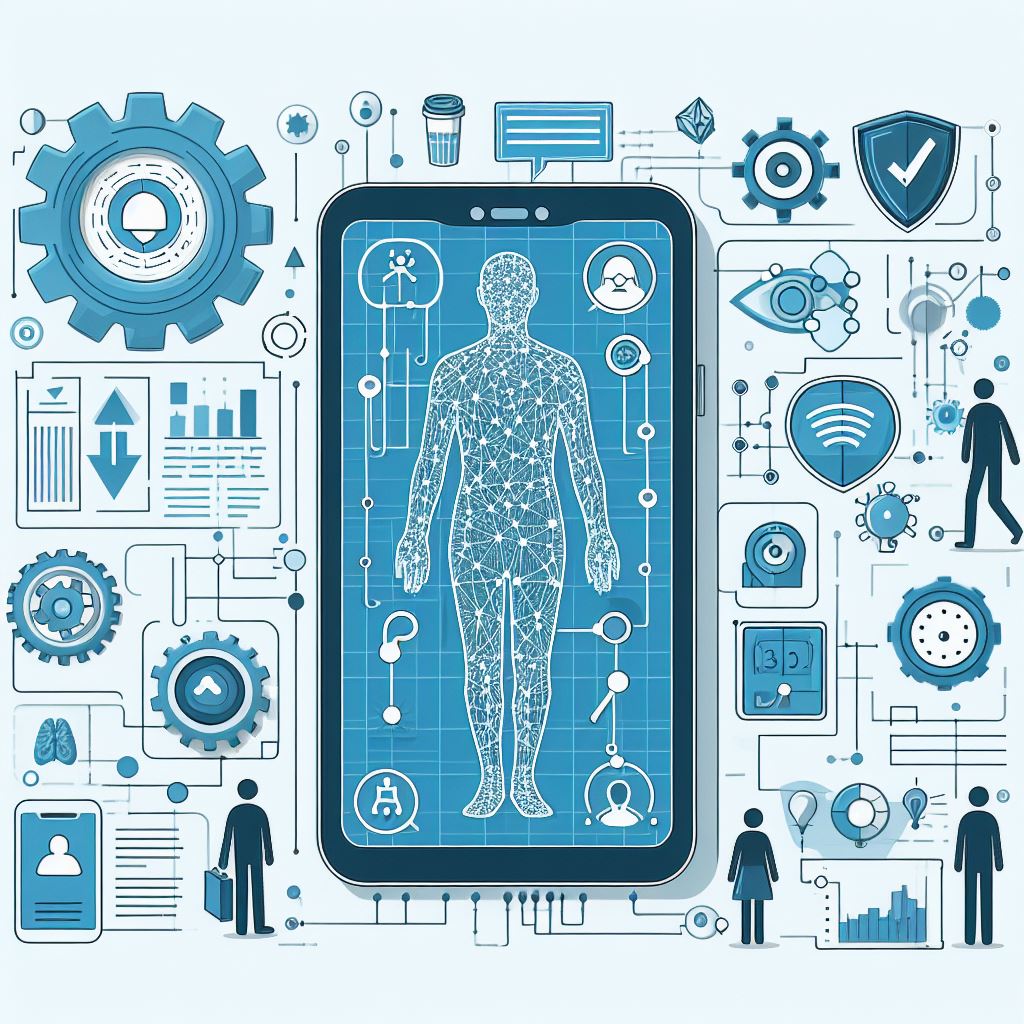click here to download project base paper of Human activity recognition
click here to download project abstract
At DataPro, we provide final year projects with source code in python for computer science students in Hyderabad , Visakhapatnam.
ABSTRACT
Human activity recognition (HAR) has gained significant attention due to its applications in various fields such as healthcare, sports analytics, and context-aware computing. This paper explores the implementation of machine learning techniques for accurate human activity recognition using smartphone sensor data. The study focuses on employing a dataset collected from smartphone sensors, including accelerometer and gyroscope, to classify various activities performed by individuals.
Firstly The methodology involves preprocessing raw sensor data, extracting relevant features, and utilizing machine learning algorithms for classification. Feature selection techniques are employed to identify the most discriminative attributes, enhancing the efficiency of the classification process. A comparative analysis of different machine learning models, including but not limited to Support Vector Machines (SVM), Random Forest, and Neural Networks, is conducted to determine the most suitable approach for activity recognition.
The experimental results showcased the efficacy of the proposed approach in accurately discerning a range of human activities including walking, running, sitting, standing, and various others. This accuracy was achieved through a high-performance classification model.
Moreover, the study delved into the impact of feature selection techniques and the utilization of diverse sensor combinations on the overall classification performance. This investigation provided valuable insights into the optimization of Human Activity Recognition (HAR) systems reliant on smartphone sensors.
By exploring feature selection methodologies, the research identified the most pertinent and discriminative features from the sensor data. This process not only enhanced the precision of activity recognition but also contributed to the efficiency of the classification model. Additionally, the exploration of different sensor combinations elucidated the optimal ways to integrate data from various sensors within smartphones, thereby fine-tuning the HAR system for improved accuracy and reliability.
The findings of this research contribute to the development of robust and efficient human activity recognition systems leveraging smartphone technology and machine learning algorithms. The presented methodology showcases the potential for real-world applications in areas such as health monitoring, personalized fitness tracking, and context-aware mobile services.
Title: Human Activity Recognition with Smartphones Using Machine Learning Process
Abstract:
The increasing ubiquity of smartphones has opened new avenues for innovative applications, particularly in the realm of human activity recognition (HAR). This post-graduate student project aims to develop an efficient and accurate HAR system leveraging machine learning techniques.
Existing System:
Current HAR systems often rely on basic heuristics or rule-based methods, leading to limited accuracy and adaptability. This project addresses these limitations by incorporating machine learning algorithms for more robust and dynamic activity recognition.
Proposed System:
The proposed system adopts a data-driven approach, utilizing machine learning models to analyze sensor data from smartphones. By employing state-of-the-art algorithms, the system aims to improve accuracy, adaptability, and real-time performance in recognizing a diverse range of human activities.
System Requirements:
- Android smartphones with built-in sensors (accelerometer, gyroscope, magnetometer)
- Python programming environment
- Machine learning libraries (e.g., scikit-learn, TensorFlow, Keras)
- Web server for hosting the user interface
Algorithms:
The project will explore and implement machine learning algorithms such as:
- Support Vector Machines (SVM)
- Random Forest
- Neural Networks
Hardware and Software Requirements:
- Hardware: Android smartphones
- Software: Python, machine learning libraries, Android Studio (for app development)
Architecture:
Since the system architecture involves a mobile application collecting sensor data, preprocessing this data on the device, and transmitting it to a backend server. Hence, the server hosts the machine learning model, responsible for activity recognition. The trained model communicates the recognized activity back to the mobile app for user feedback.
To list Technologies Used:
- Android for mobile application development
- Python for backend development
- Machine learning libraries (scikit-learn, TensorFlow) for model development
- Web technologies (HTML, CSS and JavaScript) for the user interface
Web User Interface:
The project includes a web-based interface for users to both visualize and analyze their activity data. So This interface provides a user-friendly dashboard displaying activity history, real-time recognition results, and insights derived from the machine learning models.
In summary, this project aims to enhance human activity recognition using smartphones by integrating advanced machine learning techniques. Thus the resulting system is expected to be more accurate, adaptable, and user-friendly, with a web-based interface for easy interaction and data visualization.





